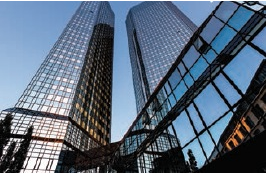By, Seth Masia January 29, 2012

“Thermal doesn’t have the sex appeal, but economically it blasts the other renewable technologies out of the water. We don’t need research and development — we need promotion.”
Bob Ramlow began selling and installing distributed power systems — wind, PV and thermal — nearly 40 years ago. Thermal systems, for space heating and domestic hot water, looked like the best deal for his Wisconsin customers. Over the years he sold, installed, supervised or consulted on thousands of thermal installations, and he earned a national reputation as an expert who could write and teach about best practices. He’s an independent master trainer for the ISPQ (Institute for Sustainable Power Quality) and NABCEP solar thermal credentials.
Ramlow wrote his first piece for SOLAR TODAY, about sand-bed heat storage, in 2007, largely because he perceived that solar thermal wasn’t getting the press it deserved. “All the [solar] publications have given solar thermal second place behind PV,” he noted. “Thermal doesn’t have the sex appeal, but economically it blasts the other renewable technologies out of the water.”
He attributes the relative paucity of solar thermal ink to the fact that the technology has been mature for decades, with few newsworthy innovations over the years. “It’s hard, when the collectors are 95 percent efficient, to make that a lot better,” he said. “We don’t need research and development support — we need promotion.”

Ramlow wrote his first piece for SOLAR TODAY, about sand-bed heat storage, in 2007, largely because he perceived that solar thermal wasn’t getting the press it deserved. Photo: Marguerite Ramlow
The big technical impediment to broad adoption of solar thermal is metering. “You can’t sell BTUs onto the grid,” he pointed out. “That means you’re always limited in the heat you can generate, to what will satisfy the local load.” Money spent developing monitors to value the heat produced is money well spent.
Pointing to the rapid polarization of Wisconsin’s state government early in 2011, Ramlow says he’s cynical right now about the nation’s political and economic situations. “If big businesses get their way we’re in for huge trouble,” he said. “Renewable energy will be the least of our troubles, compared to putting food on the table.”
That said, he’s positive about solar thermal over the next 25 years. “Everybody’s going to have it eventually, so let’s get to it now,” he said. “It’s inevitable that we’ll run out of fossil fuel, and what’s the alternative? The rest of the world is now embracing solar water heating in big way. Look at Germany and France. Solar thermal is now mandatory in some countries, and Hawaii is the first state to make it mandatory. Drive down the street and count the houses without solar arrays. That’s a monster opportunity. I teach a lot of plumbers to do this, and they’re looking forward to the business growth.”




